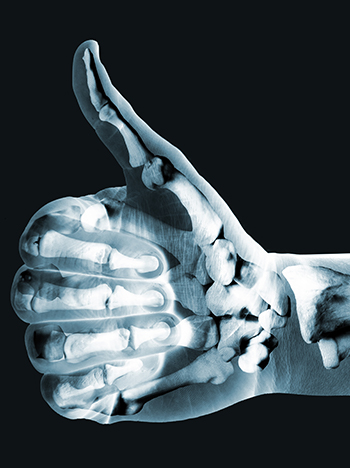Orange Juice Vitamin D

Calcium
What is Calcium?
Calcium is an electrolyte and the most abundant mineral in the body. Calcium is necessary for the healthy and development of bones and teeth, and it participates in blood pressure regulation, blood clotting, muscle contraction, and nerve signal transmission.1,2
Benefits of Calcium
Calcium is primarily stored in bones. If we don't get enough calcium from our diet, the body will take calcium from bones to ensure normal cell function. This can lead to weakened bones over time and may raise the risk of osteoporosis.1,2 Calcium and vitamin D have been identified as nutrients of concern in the Dietary Guidelines for Americans because most people do not consume adequate amounts of these nutrients.3
Foods High in Calcium
Milk and other dairy foods aren't the only way to get your daily recommended intake of calcium. Some non-dairy options include calcium-fortified orange juice, kale, soybeans, some varieties of tofu, canned sardines, and white beans.4
An 8-ounce glass of fortified orange juice contains about 30% of the recommended Daily Value of calcium, similar to an equal serving of milk.4 Calcium in fortified OJ is also well-absorbed.1
Vitamin D
What is Vitamin D?
Vitamin D plays a critical role in calcium metabolism, and supports bone health, cell growth, immune system function, nerve and muscle function, and gene expression.2,5,6
Benefits of Vitamin D
Vitamin D acts to greatly increase the amount of calcium that the intestines can absorb from food and is essential for balancing calcium in the body.
Vitamin D Deficiency
Although we can make vitamin D from sunlight, many people do not make enough vitamin D, especially if they live in higher latitudes (far north/south), spend much time indoors, or have darker skin.2,5
Foods High in Vitamin D

Very few foods contain appreciable amounts of vitamin D – fortified orange juice, fortified dairy, eggs, fish, and mushrooms.4 While orange juice does not naturally contain vitamin D, 8 ounces of fortified orange juice contains 15% of the recommended daily value.* Fortified foods provide most of the vitamin D in an average American's diet3 making fortified orange juice a convenient way to consume vitamin D.
Life Stage Benefits
Below are age specific benefits calcium and vitamin D provide the body:
Prenatal

- Both support the health and formation of bones in mother and child. This is especially important in the later stages of pregnancy when the baby's skeleton is developing.
- Calcium may help some pregnant women maintain healthy blood pressure.2
- Fortified orange juice is an excellent, non-dairy source of calcium, typically providing about 350 milligrams per serving, or 30% of the daily needs for pregnant women.2,4*
Kids, Teens & Young Adults

- Maximum bone density is reached by early adulthood; thus, it is very important children and teens consume enough calcium.2
- Supporting the immune system, vitamin D helps cells fight infection.6
- Fortified orange juice can provide almost one-third of the calcium and vitamin D needs of children in a recommended serving (6 oz for kids under 7 years; 8 oz for older kids .7)
- Vitamin D-fortified orange juice has been shown to increase vitamin D blood levels in children.9
- Fortified orange juice has been shown to be similar to milk in positively affecting markers of bone growth in children.8
Adults

- Bones are constantly being remodeled and the entire skeleton is replaced about every 10 years.2 Adequate calcium and vitamin D, as part of a balanced diet along with physical activity, may reduce the risk of osteoporosis.3
- Calcium requirements are higher in persons older than 50 years, and vitamin D needs are higher in persons 70 years and older.2
- An 8-ounce glass of fortified orange juice provides about one-third of the Daily Value for calcium.2
- Fortified orange juice has been shown to be just as effective as a vitamin D supplement in maintaining vitamin D status in adults.10
*Values based on a 2000 calorie diet. FDA rounding rules applied when calculating percent DV based upon 2018 rules. Information is not intended for labeling food in packaged form. Nutrient values may vary based on brand or product types.
Source: https://www.floridacitrus.org/oj/health-nutrition/oj-nutrition-facts/calcium-and-vitamin-d/


0 Komentar